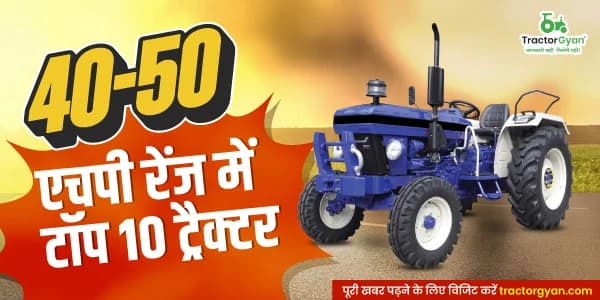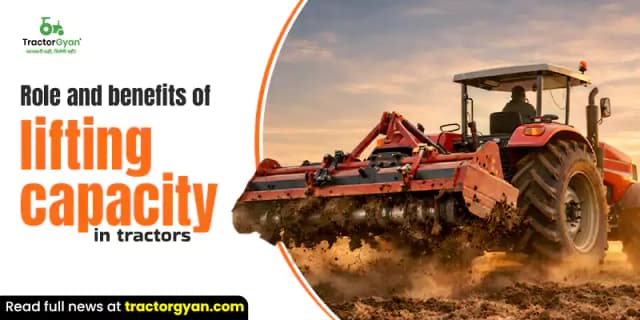Understanding Ripper and Subsoiler Advantages and Disadvantages
टेबल ऑफ कंटेंट
In the world of farming, there are two powerful tools that help farmers prepare their soil and grow better crops rippers and subsoilers. These machines might look similar, but they have different jobs.
Rippers for tractor have sharp blades that go deep into the soil to break up hard layers and let air in. This helps plants grow better because their roots can breathe and get more nutrients.
Subsoilers for tractor, on the other hand, have strong prongs that also go deep into the ground. They don't mix the topsoil but make space for air and water to reach plant roots. This is especially helpful in areas where the soil is too compacted.
In this blog, we'll learn more about rippers and subsoilers, what they do, and how they help farmers. By understanding these tools, farmers can choose the right one for their fields, making their soil healthier, getting better crops, and taking good care of the land.
Understanding Tractor Ripper: Breaking the Soil Barriers

A ripper machine is a robust agricultural tractor implement designed to address soil compaction issues and improve soil structure. In India, where a significant portion of arable land suffers from soil compaction, rippers have become vital for sustainable farming. Here's why they're essential.

Advantages of Rippers Tractor
-
Compaction Remediation: Soil compaction is common in India due to various factors, including the use of heavy machinery, animal trampling, and traditional farming practices. Rippers penetrate the compacted layers, breaking up the hardpan, and enhancing soil aeration.
-
Improved Water Infiltration: Compacted soil hinders water infiltration, often leading to surface runoff and water wastage. Rippers create channels in the soil, allowing water to penetrate deeper, reducing the risk of drought and improving water-use efficiency.
-
Enhanced Root Growth: Indian agriculture relies on crops like rice, wheat, and sugarcane, which require deep root penetration to access nutrients and moisture. Rippers help promote deeper and healthier root growth, contributing to increased yields.
-
Reduced Soil Erosion: With better water infiltration and reduced runoff, rippers play a crucial role in mitigating soil erosion. This is particularly significant in areas prone to heavy monsoons.
Disadvantages of Rippers Tractors
Rippers are valuable farming tools for soil improvement, but it also come with some disadvantages:
-
Soil Disturbance: Rippers can significantly disturb the soil, especially if used improperly or excessively. This disturbance can lead to increased soil erosion and the loss of valuable topsoil.
-
Loss of Soil Moisture: Deep ripping can sometimes lead to increased evaporation of soil moisture, especially in arid or semi-arid regions. The opened channels may allow moisture to escape to deeper layers, which can be counterproductive in areas with limited water resources.
-
Energy and Equipment Requirements: Ripping typically requires powerful tractors and heavy machinery, which can be costly to operate and maintain. This can be a disadvantage for small-scale or resource-limited farmers.
-
Compaction Risk: In some cases, especially if rippers are used on wet or unsuitable soil conditions, they may cause compaction at the depth of operation. This can negate the benefits of soil aeration and root access.
Exploring Tractor Subsoiler: Beneath the Surface

Subsoilers Machine, often mistaken for rippers, serve a similar purpose but have distinct differences in design and operation. A subsoiler is an agricultural implement used in farming to alleviate soil compaction and improve soil structure below the surface. It is typically designed with one or more straight, rigid tines or shanks that penetrate the soil vertically or at a slight angle. Unlike traditional plows or cultivators that work on the surface, subsoilers are intended to operate at greater depths, typically between 12 to 24 inches below the surface.

Advantages of Subsoilers Tractor
-
Soil Loosening: Subsoilers are designed to break compacted soil beneath the surface without inverting the soil profile. They work to create fractures in the soil while minimizing disturbance to the topsoil.
-
Non-Inversion: Unlike traditional ploughs that turn over the soil, subsoilers keep the topsoil relatively undisturbed, preserving soil structure and organic matter.
-
Water Conservation: In water-scarce regions of India, subsoilers can be incredibly valuable. By improving water infiltration and root access to moisture, they enhance water-use efficiency.
Disadvantages of Subsoilers Tractors
Subsoilers are valuable farming tools for soil improvement, but they also come with some disadvantages
-
Limited Surface Impact: Subsoil plough primarily focus on soil compaction beneath the surface and may not address surface compaction issues effectively. In some cases, surface compaction might still hinder water infiltration.
-
Dependence on Soil Conditions: The effectiveness of subsoilers is highly dependent on soil conditions. In some instances, if the soil is extremely compacted or the subsoiler is not designed for the task, it may not deliver the desired results.
-
Risk of Overuse: Farmers who use subsoil plough without monitoring soil conditions or compaction levels may risk overusing them, which could lead to excessive soil disturbance.
-
Lack of Topsoil Mixing: Subsoilers are not designed for mixing organic matter or crop residues into the soil. This can be a disadvantage if incorporating such material is necessary for soil improvement.
It's important to note that the disadvantages of rippers and subsoilers can often be mitigated by using these tools appropriately and in line with best agricultural practices. Understanding the specific needs of the soil and crops, as well as the local environment, is crucial for making the most of these tools while minimizing potential drawbacks.
Major Difference Between Ripper and Subsoiler
Tractor Rippers and Tractor subsoilers are both agricultural implements used for soil preparation and improvement, but they have different designs and functions. Here are the key differences between rippers and subsoilers:
Design and Operation
-
Ripper: A ripper is designed with one or more straight or curved tines or shanks that penetrate the soil vertically or at a slight angle. These shanks are typically equipped with sharp points or blades to break up compacted soil layers. Rippers create deep furrows or channels in the soil while mixing it to some extent.
-
Subsoiler: A subsoiler, on the other hand, features one or more straight, rigid tines or shanks that penetrate the soil vertically or at a slight angle. Subsoil ploughs are primarily designed to break up soil compaction and create fractures in the soil without significantly disturbing the topsoil. They tend to work at greater depths than rippers.
Purpose
-
Ripper: The primary purpose of a ripper is to address soil compaction and improve soil aeration. It works by breaking up compacted layers to allow for better root growth, water infiltration, and nutrient absorption. Rippers are more aggressive in soil disturbance and can be used for deeper tillage.
-
Subsoilers: Subsoilers are specifically designed to alleviate soil compaction beneath the surface without inverting the soil profile. They create fractures in the subsoil while preserving the topsoil structure. Subsoil ploughs focus on improving water infiltration and root access to moisture and nutrients in deeper soil layers.
Soil Disturbance
-
Ripper: Rippers tend to disturb the soil more significantly, mixing the topsoil with the subsoil to some degree. This can be beneficial for incorporating crop residues or preparing the soil for deeper planting.
-
Subsoilers: Subsoilers aim to minimize soil disturbance in the topsoil. They work on the principle of non-inversion, leaving the topsoil relatively undisturbed while addressing soil compaction below the surface.
Use Cases
-
Ripper: Rippers are versatile and can be used for a wide range of purposes, including deep tillage, soil preparation for planting, and incorporating organic matter. They are particularly useful for addressing compacted soil in fields with heavy traffic or where ploughing may be required.
-
Subsoilers: Subsoilers are mainly employed for soil improvement and remediation of compacted layers. They are ideal for improving water infiltration, and root access, and addressing soil compaction issues while keeping the topsoil relatively intact.
while both rippers and subsoil ploughs play crucial roles in soil health and crop production, their primary differences lie in design, soil disturbance, and their specific functions. Rippers are more versatile and can be used for deeper tillage and mixing, while subsoilers are specialized tools for addressing soil compaction without significantly disturbing the topsoil. The choice between the two depends on the specific needs and soil conditions of the farming operation.
Conclusion
Rippers and subsoil ploughs are indispensable tools in modern Indian agriculture. They tackle soil compaction, enhance water infiltration, and promote deeper root growth, ultimately leading to improved crop yields and more sustainable farming practices. With India's ever-growing population and the need for food security, these implements are critical to meeting the challenges of the 21st century. As Indian agriculture continues to evolve and embrace modern practices, rippers and subsoil ploughs will play a pivotal role in achieving higher yields and greater sustainability.
कैटेगरी
और ब्लॉग पढ़ें
Agricultural tools are an efficient way to ease the farming process. Various agricultural tools help the farmers to help them in their farming activities and minimize their workloads.
One such effective agricultural tool...
A rotavator is an agricultural implement that uses a series of blades to sow seeds by cutting, pulverising, mixing, and levelling the soil such that making it suitable for farming and cultivating crops.
A rotavator is also known as a...
A combine harvester (mini combine harvester) is a complex agricultural machine that operates and functions to cut and threshes grains and several crops. Mini harvesters are used for harvesting, winnowing, and threshing grains like wheat, barley, maize, oats, and rice, as well...
इसके बारे में अपनी टिप्पणी लिखें Understanding Ripper and Subsoiler Advantages and Disadvantages
.webp&w=1920&q=75)
ट्रैक्टर और कृषि से जुड़े सबसे अधिक खोजे जाने वाले ब्लॉग्स
07 Jan 2026
18 Dec 2025
29 Jul 2025
08 Sep 2025
03 Jul 2025
30 Jul 2025
30 Jul 2025
30 Jul 2025
29 Jul 2025
30 Jul 2025
09 Feb 2026
31 Jul 2025
18 Dec 2025
26 Dec 2025






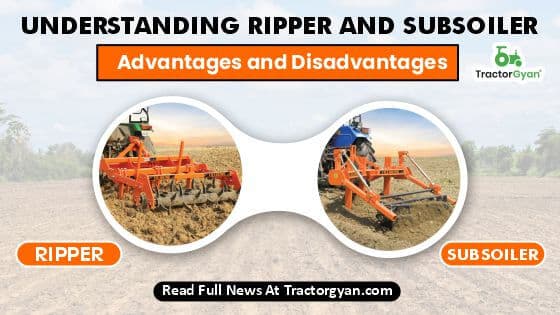
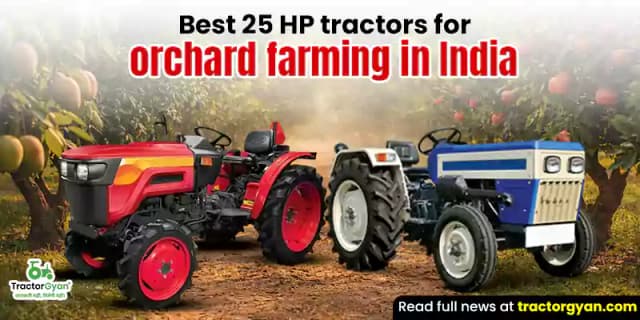
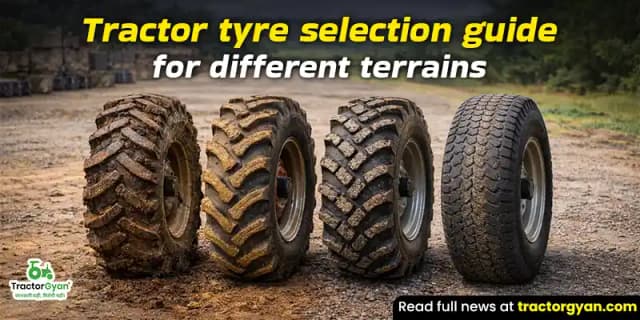




.webp&w=2048&q=75)
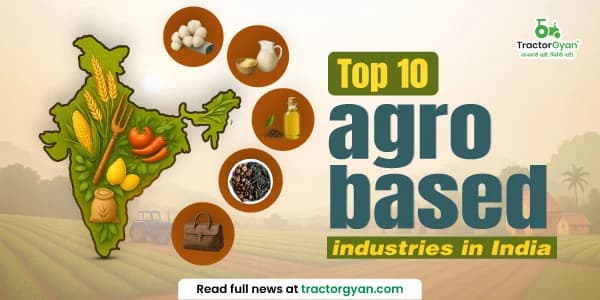
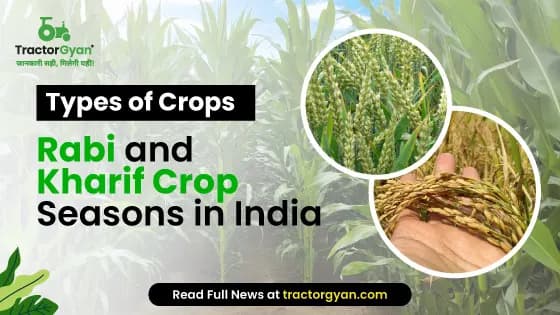


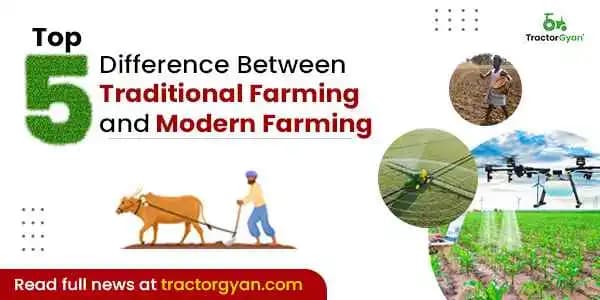
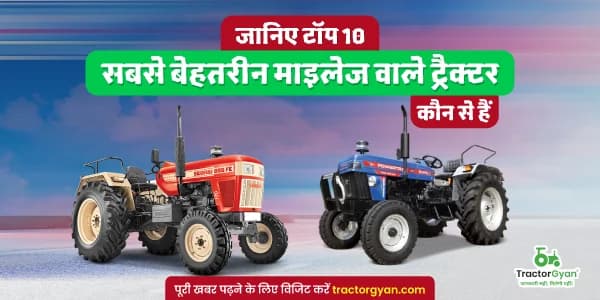
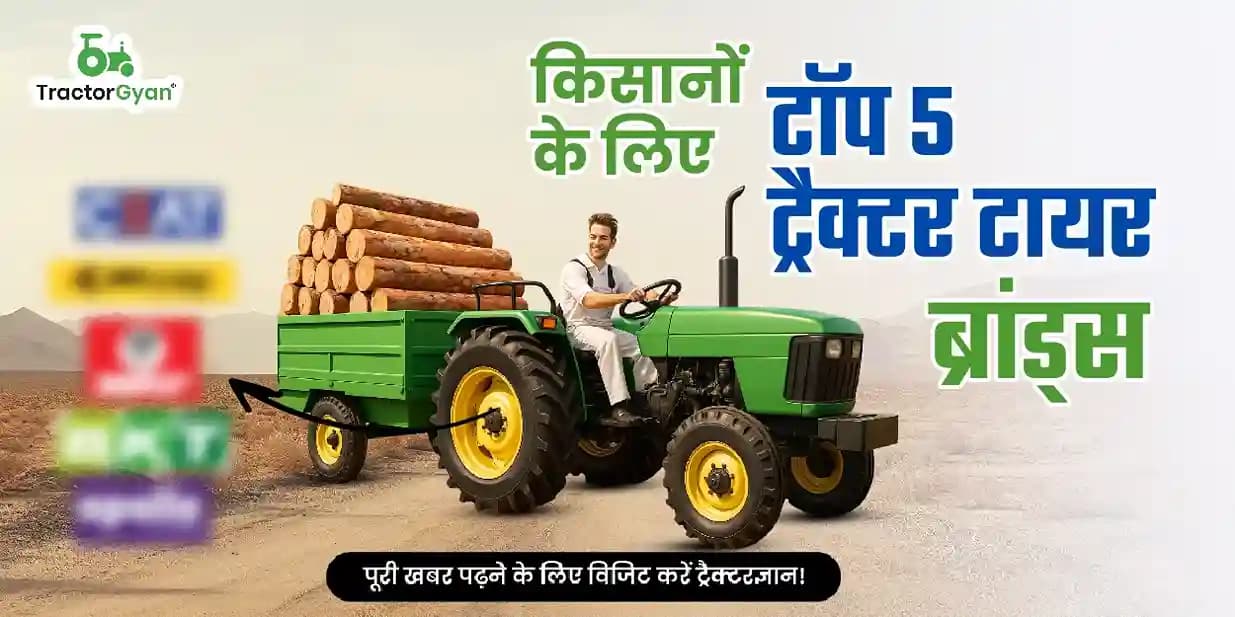
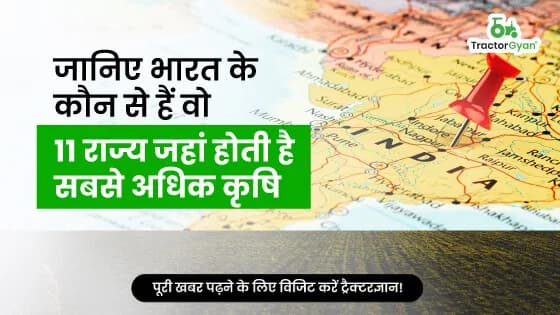
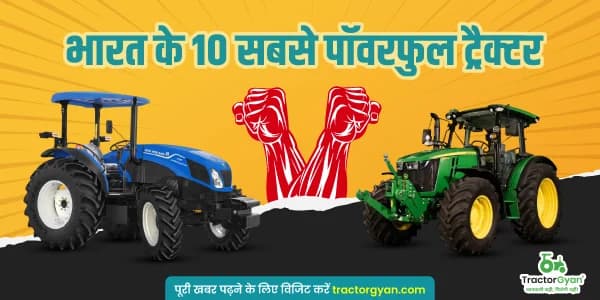
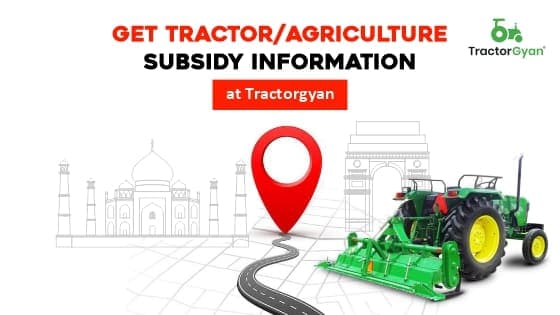
.webp&w=2048&q=75)
.webp&w=2048&q=75)
